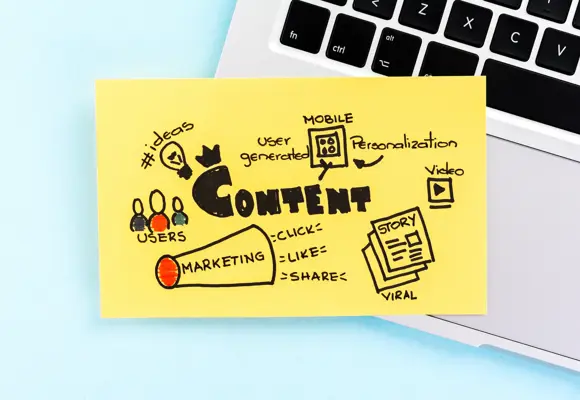January 28, 2025
Struggling to keep up with the fast-paced world of digital marketing? AI is changing how digital marketers are connecting with their audience. This blog will show you tools and strategies to work smarter, not harder.
Ready to learn how AI can boost your next campaign?
Key Takeaways
-
AI empowers marketers to predict trends, optimize and create content, and personalize campaigns. Popular tools like Jasper AI and Surfer SEO are popular for optimizing tasks.
-
Netflix, Spotify, and Amazon use AI to enhance personalization.
-
AI analytics tools deliver measurable results. For example, Albert.ai helped Harley Davidson achieve a 2,930% increase in monthly leads, while sentiment analysis tools like Brand24 allow brands like Uber to adapt their strategies in real time.
-
Streamlined workflows save time and resources. AI can automate repetitive tasks, saving over two hours per day. Tools like Shopify Magic enable e-commerce businesses to scale content creation without additional staffing.
-
Ethics and data privacy are key considerations. Using fair datasets and following privacy regulations like GDPR are essential for maintaining customer trust and delivering unbiased results.
Applications of AI in Digital Marketing
AI is transforming how businesses engage with customers, providing insights that improve marketing strategies, personalize experiences, and optimize campaign performance. Here are some ways AI can be utilized in digital marketing:
Content creation and optimization
AI tools are reshaping content creation by generating high-quality marketing materials quickly and efficiently.
-
Jasper AI simplifies creating blog posts, social media captions, and emails, with over 5,000 five-star reviews highlighting its effectiveness in drafting marketing content.
-
Surfer SEO enhances website visibility by optimizing content based on SEO best practices, trusted by major brands like FedEx.
-
StealthGPT refines AI-generated text, making it sound natural and undetectable by AI detection tools, while Lexica Art designs realistic social media graphics to boost engagement.
Customer segmentation and personalization
AI enables marketers to segment customers based on behavior, interests, and purchasing patterns, allowing for highly personalized marketing campaigns.
-
Netflix and Spotify use machine learning algorithms to recommend tailored content, enhancing user experience.
-
Amazon relies on predictive analytics to deliver product recommendations that match customer preferences.
-
AI tools like Jasper AI can analyze customer data to provide deeper insights, helping businesses refine and personalize customer interactions efficiently.
Campaign performance analytics
Tracking and optimizing campaign performance is crucial for maximizing ROI, and AI tools provide real-time analytics that simplify this process.
-
Albert.ai optimizes ad content and has proven its effectiveness with brands like Harley Davidson, which saw a 2,930% increase in monthly leads.
-
Brand24 offers sentiment analysis by monitoring media mentions, allowing companies like Uber to make quick adjustments based on customer feedback.
AI-driven analytics uncover trends, identify what strategies are working, and help businesses make data-driven decisions, ensuring campaigns remain targeted and effective.
Benefits of Integrating AI in Digital Marketing
AI makes marketing faster and smarter. Tools like predictive analytics and machine learning reveal patterns, helping teams make better choices.
Increased efficiency and scalability
AI slashes time spent on repetitive tasks. It saves over 2 hours daily by automating essential workflows, freeing up focus for big-picture marketing strategies. Tools like Zapier’s “zaps” automate over 3,000 integrations, cutting manual labor and boosting productivity.
Scalability improves with AI tools that handle large workloads seamlessly. Shopify Magic generates product descriptions in seconds, helping e-commerce businesses create content faster without extra staff.
This means more output with less input—saving resources while driving growth.
Enhanced customer engagement
AI chatbots like Userbot.ai boost customer engagement instantly. They handle queries with natural language processing, making interactions feel human-like. If the bot can't solve a problem, it smoothly passes the issue to a real person without delay.
This keeps customers happy and reduces wait times.
Tools such as Grammarly improve communication for email marketers by enhancing clarity and tone. On social media platforms like Instagram or LinkedIn, AI-driven insights analyze sentiment from user comments, helping social media marketers adapt strategies in real-time.
These tools strengthen relationships between brands and their audiences while building trust through smart engagement tactics.
This leads us straight into how AI optimizes campaign performance analytics.
Challenges of Using AI in Digital Marketing

AI can stumble when data quality isn’t up to par, leading to errors or missed opportunities. Balancing innovation with ethical AI use and user privacy remains a high-wire act for marketers.
Ethical considerations and data privacy
Using AI in digital advertising demands ethical care. Always inform users about AI’s role in handling their data. Clear disclosure builds trust and strengthens customer relationships.
Follow privacy laws like GDPR to protect personal information and avoid legal issues.
Biases in machine learning algorithms can harm campaign strategies. Use diverse datasets during analyzing data for predictions, ensuring fairness across all customer segments. Regular audits and monitoring help identify inaccuracies or errors before they impact your marketing strategy.
Dependence on high-quality data
AI tools thrive on high-quality data. Errors and gaps in data lead to faulty predictions, wasted budgets, and poor outcomes. For example, targeted ads depend on precise customer insights to reach the right audience.
Without accurate data analysis, a campaign might miss valuable leads or show irrelevant content to users.
Big data plays a key role in making AI-driven strategies work. Machine learning (ML) tools need clean datasets for training models that power marketing automation or predictive analytics.
Marketers can use CRM systems like HubSpot to track KPIs more effectively, ensuring campaigns stay goal-oriented. Strong datasets fuel better results across Google Ads or SEO efforts.
Final Thoughts
AI is shaking up digital marketing in big ways. It boosts efficiency, personalizes campaigns, and improves customer connections. Tools like Jasper AI or Surfer SEO simplify tasks and cut wasted time.
Yet, using it wisely matters—ethics and data privacy can’t be ignored. Done right, AI offers a huge edge for today’s marketers.
FAQs
1. What is AI's role in digital marketing?
AI plays a big part in digital marketing by automating tasks, improving data analysis, and helping with predictive analytics. It supports marketers with tools like keyword research, sentiment analysis, and search engine optimization (SEO).
2. How does AI assist in creating content for social media or ads?
AI tools like Jasper AI can help generate ad copy, subtitles, and landing pages. They analyze trends to produce engaging content for platforms like Google Ads or social media campaigns.
3. Can machine learning improve pay-per-click (PPC) advertising?
Yes! Machine learning uses data analytics to optimize PPC strategies. It helps advertisers target the right audience while analyzing performance through A/B testing and prescriptive analytics.
4. What are the ethical concerns when using AI in marketing?
Biases in AI can affect outcomes like sentiment analysis or customer relationship management (CRM). Ethical use of AI requires frameworks to address risks such as misinformation or "hallucinated" outputs from large-language models.
5. How do SEO tools powered by AI give businesses a competitive advantage?
AI-driven SEO tools streamline keyword research and simulate user behavior on search engines. This boosts rankings while reducing manual effort for marketers focused on search engine optimization.
6. Are there risks involved with relying on artificial intelligence for decision-making?
Yes, there are risks! Neural networks may misinterpret data at times or provide inaccurate predictions due to biases in training datasets—computer scientists often warn about these limitations when designing systems used in digital advertising or CRM tasks.
Let's talk about your 2025 business goals
From design to PPC and everything in between, our experts will set you up for success.

